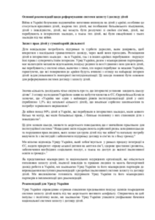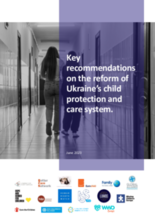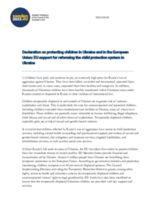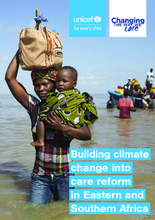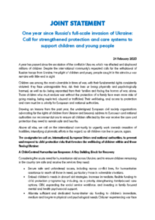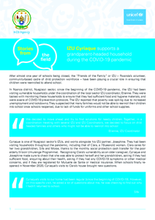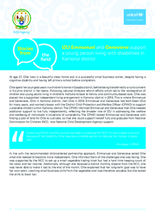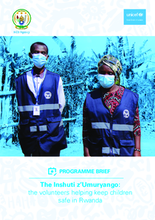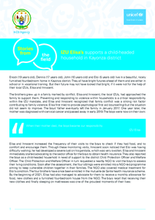Displaying 131 - 140 of 1025
Шістнадцять неурядових організацій, які мають досвід захисту дітей, інклюзії з обмеженими можливостями та прав людини, закликають Уряд України та його міжнародних партнерів виконати ці ключові рекомендації щодо розвитку інклюзивної системи захисту
Sixteen NGOs with expertise in child protection, disability inclusion and human rights call on the Government of Ukraine and its international partners to implement these key recommendations on the development of an inclusive child protection and care system.
The Swedish Presidency has initiated a declaration to support the protection of Ukrainian children. The declaration will mobilise support among EU Member States for continued engagement in protecting the children who have been affected by Russia’s full-scale invasion of Ukraine.
This UNICEF/CTWWC paper argues that climate change is the greatest current and future threat to children’s care in the Eastern and Southern Africa region. Responding to this threat requires urgent coordinated action related to care reform policies and interventions and climate change responses.
This UNICEF ESARO webinar examines the impacts of climate change on children's care and explains how care reform strategies and programmes need to adapt to address these new realities. The webinar explored how climate change affects communities in Eastern and Southern Africa.
In this joint statement, the co-signatories call on international, European Union and national authorities, to prevent and respond to child protection risks that threaten the well-being of children within and those fleeing Ukraine.
In this case study IZU Cyriaque supports a grandparent-headed household during the COVID-19 pandemic.
This case study details,how IZU Emmanuel and Genevieve supported a young person living with disabilities in Kamonyi district, Rwanda.
This brief outlines the background to, rationale for, and objectives of the ‘Inshuti z’Umuryango’ (IZU) or ‘Friends of the Family’ programme in relation to Rwanda’s wider child protection strategy.
This case study details how IZU Elisa supported a child-headed household in Kayonza district, Rwanda.

